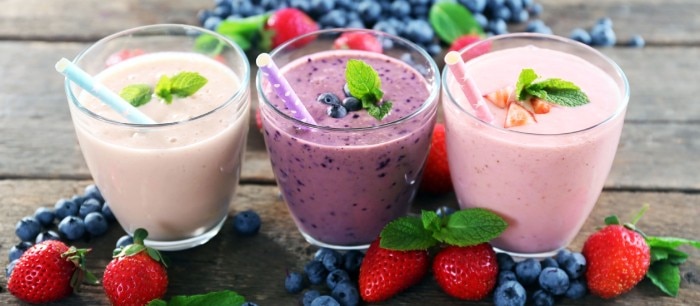MENÚ
ES | EUR
ES | EUR
-
- Benchtop Centrifuges
- Floor-Standing Centrifuges
- Refrigerated Centrifuges
- Microcentrífugas
- Centrífugas multiuso
- Centrífugas de alta velocidad
- Ultracentrífugas
- Concentrador
- High-Speed and Ultracentrifugation Consumables
- Accesorios
- Tubos
- Placas
- Gestión de dispositivos
- Gestión de muestras e información
- Productos IVD
No se han encontrado resultados
Sugerencias de búsqueda

Science in Food – Probiotics, Flavorings & Co
Exploración de las ciencias de la vida
- Cultivo celular
- Ensayo
- Alimentos y bebidas
- Salud y medicina
Science in everyday life: Food-biotechnology - Biotechnology can make a substantial contribution to the efficient use of resources, yield optimization and the production of high-end products - furthermore it’s already been in use for thousands of years.
People have been using fermentation in food preparation for millennia. Early farmers in Mesopotamia started brewing beer about 10.000 years ago while the ancient Egyptians were noted for their wine production and for baking bread. The processing of milk into cheese and yogurt has also been historically well documented. For thousands of years it remained a mystery how these methods worked - it simply, often being down to good luck if tasty or well preserved products resulted or not.
Biotechnology can therefore optimize the production of existing food products and can also help in the development of novel new approaches. In future, it could also provide a key defense mechanism for safeguarding the world’s food supply.
Once it was food preparation - now it’s biotechnology
Nowadays, we understand the biochemical background of food production through detailed scientific knowledge. From the 19th century onwards, developments in microbiology created a deeper understanding of the process of microbial fermentation. This, in turn, has helped to ensure the consistent quality of today’s processed foods. This field of science, in which microbes are used for the modification of products, is known as biotechnology. With the identification of DNA as the carrier of the genetic code and the later development of Polymerase-Chain-Reaction, in the mid-20th century, as a means of DNA amplification, gene technology has gained increasing significance. About 80 % of all our foodstuffs are influenced in some way by scientific research. Modern methods can help to make our food healthier, tastier and safer, than previously. Biotechnology can, for example, reduce the effect of harmful ingredients and remove allergens.Food-biotechnology - A diverse range of applications
Biotechnology is applied widely within the dairy industry. For thousands of years cheese was produced with natural calf rennet. Today, however, rennet is usually produced using genetically modified bacteria. Other enzymes produced biotechnologically are used to break down sugars within milk. This process intensifies the milk’s flavor and sweetness, thereby making it viable as a source of nutrition for people with lactose intolerance. Fat reduced yogurts are similarly supplemented with enzymes which improve their texture and help to create a richer taste.In general, enzymes are one of the most important substances within the food industry. More than 40 enzymes are frequently used within a broad range of production processes. These can, for example, optimize fats and proteins, stabilize cream and foam, modify starches and bond reconstituted meat.There aren’t enough lemon trees on the planet for all the lemonade we drink
Many vitamins, flavors, fatty and organic acids are made using biotechnology. Vitamin C for example, is produced through a multi-step synthesis which combines both chemical and bacterial processes. Over 40.000 tons are produced annually on worldwide basis, as a result of this process. Furthermore, our so-called convenience foods, are the result of extensive research. The food industry is continuously developing new biologically active substances such as probiotics, antioxidants or unsaturated fatty acids which are used as food additives and which also claim to provide health benefits.Artificial Food – “Pie in the Sky”?
Within the context of increasing global population and the continued growth of factory farming, some scientists go even further and are attempting to develop new, alternative technologies. Pioneers like Josh Tetrick from Hampton Creek who developed the “chicken free egg”, an egg substitute made from yellow pea protein or Mark Post from Maastricht University who is growing minced beef from cell samples of living cattle are searching for radical solutions.Biotechnology can therefore optimize the production of existing food products and can also help in the development of novel new approaches. In future, it could also provide a key defense mechanism for safeguarding the world’s food supply.
Leer más
Leer menos
